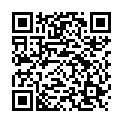|
|
|
| Module code: FT56 |
|
|
3V (3 hours per week) |
|
3 |
| Semester: 6 |
| Mandatory course: no |
Language of instruction:
German |
Assessment:
Oral or written exam
[updated 30.09.2020]
|
FT56 (P242-0096) Automotive Engineering, Bachelor, ASPO 01.10.2011
, semester 6, optional course
FT56 (P242-0096) Automotive Engineering, Bachelor, ASPO 01.10.2015
, semester 6, optional course, course inactive since 27.07.2017
FT56 (P242-0096) Automotive Engineering, Bachelor, ASPO 01.04.2016
, semester 6, optional course
FT56 (P242-0096) Automotive Engineering, Bachelor, ASPO 01.10.2019
, semester 6, optional course
MAB.4.2.4.13 Mechanical and Process Engineering, Bachelor, ASPO 01.10.2013
, optional course, specialisation
|
45 class hours (= 33.75 clock hours) over a 15-week period.
The total student study time is 90 hours (equivalent to 3 ECTS credits).
There are therefore 56.25 hours available for class preparation and follow-up work and exam preparation.
|
Recommended prerequisites (modules):
None.
|
Recommended as prerequisite for:
|
Module coordinator:
Prof. Dr. Jörg Hoffmann |
Lecturer:
Dr. rer. nat. habil. Mario Götz
[updated 16.03.2023]
|
Learning outcomes:
After successfully completing this course, students will be able to:
- describe the functions and operating principles of different electronic and mechanical components of driver assistance systems,
- design, prepare and carry out experimental tests and evaluate their test results,
- analyze and name the interactions between the human-machine interface and driver assistance systems.
[updated 30.09.2020]
|
Module content:
Fundamentals of driver assistance system development
Virtual development and test environment for driver assistance systems
Sensor technology for driver assistance systems
Data fusion and environment perception
Actuators for driver assistance systems
Human-machine interface for driver assistance systems
Driver assistance with regard to stabilization
Driver assistance with regard to track guidance and navigation
[updated 30.09.2020]
|
Teaching methods/Media:
Lecture notes, slides and vehicle presentations, handouts, driving exercises, tests
[updated 30.09.2020]
|
Recommended or required reading:
Lecture notes
Wimmer, Handbuch Fahrerassistenzsysteme, Springer Vieweg
Reif, Fahrstabilisierungssysteme und Fahrerassistenzsysteme, Vieweg+Teubner
[updated 30.09.2020]
|


